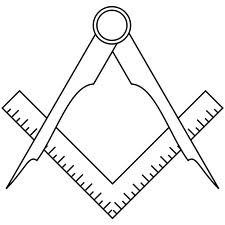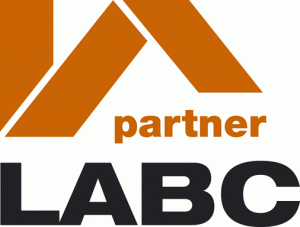| the Christopher Huntpractice architectural and building design for residential development |
|
Site
Menu
 |
|
|
Top 10 tips for selecting a Home Extension Designer or Architect that meets with your required level of expectations and requirements.There is no 'one size fits all' approach!
This 'top 10 tips list' is my own opinionated simplistic approach to help homeowners select a dedicated professional to suit their own needs and avoid a missmatch of expectations. Please treat it as a guide only - it is not a definitive schedule. Christopher Hunt MCIAT is not an Architect. If you specifically want an Architect click this link 1. Decide if your quest for Design assistance is for a 'Design led approach' or is it a 'Budget led approach'. eg - Are you seeking a proactive and supportive Designer providing a range of services and support from start to finish or, are you simply seeking the lowest cost for a prescriptive 'bolt on' home extension simply to get your builder going on site. The type of professional you eventually select will usually be determined by your attitude to this very first question and the two options can never be mixed. The former option usually provides a well designed remodelled and extended home with very few surprises or issues along the way but at a cost, while the latter option is usually the main ingredient for disputes, upset and missed goals that is the fodder used for such adverse consumer TV programmes. You know the ones I mean. 2. Make a list of your requirements together with any sketches ready for the interview process. This will help you eliminate the type of home extension designer you do not require simply by the way they react to your wish list of proposals or requirements. It also ensures that your home extension designer understands your requirements right from the start so that he can get a better feel for his own work involvement. 3. Avoid the 'yes man'. Many 'Plan Drawers' simply want to be told exactly what you want and they will do just that - no questions asked. Unless your ideas, concepts, requirements and first thoughts are 'stress tested' via challenging debate or via the consideration of alternative ideas and solutions by a more experienced and proactive home extension designer or Architect, most home owners will never achieve the best solution for their scheme. 4. Interview, interview and then interview some more. Any good Design Agent should be able to express ideas and concepts through well articulated verbal descriptions or by basic sketches on the day. Are they being excited by what you want to achieve? Are they listening to you main requirements? Have they provided some ideas or confirmed that your own ideas are good and can be achieved through the Planning system? Are they part time operators offering limited back up or is this their main career? Get under their skin and really fine out what they have to offer for their fees being requested. Some, (like myself) have a modest small charge for this first site meeting and feasibility reporting service while others will visit for free. 5. Make sure you obtain their written assessment of your scheme and a firm fee proposal with a schedule of all other likely costs together with their terms. Have they provided a suggested time scale for each part of the process? Do they have adequate resources (experience, contacts, networks, time etc.)? Are they amenable to site meetings for evolving the proposals? 6. Make sure your home extension designer or Architect has current and adequate PI insurance for errors and omissions. We all make mistakes so having access to insurance funds in the event your Designer makes a mistake could be a life saver for many clients if it goes wrong. Most cheap end 'plan drawers' never have this facility to offer their clients whilst most professionals belonging to a recognised professional body do (RICS, CIAT and RIBA being the main ones). Belonging to a recognised building design professional body also affords the client with a framework and standard of service, expertise, skills, compliance requirements and CPD. So called generic 'non architects' or non qualified home extension designers have no such support mechanisms for your safety. 7. Select the professional who has the matching skills and experience required. Not all architects are specialised in residential design so just because someone is a qualified architect does not make them automatically suitable for a domestic home extension scheme. I personally would rather have an experienced 'plan drawer' than a Commercial Architect 'dabbling' part time in the residential field just because he/she thinks its easy. Likewise Using an Engineer may not produce the most externally pleasing design with the best use of internal space - it will stand up for sure but may not be of the best design solution either internally or externally. Does a Building Surveyor have the right lateral thinking mind set for a modernist contemporary design? The questions can be endless. 8. Check their track record regarding previous design work over the last 2 years. This is really easy now with publicly recorded digital files. Go through the councils planning records and view their success rate and the quality of their design drawings. Request to view samples of a typical design package that must include the construction design as not all so called 'building designers' and architects are capable of such detailed construction knowledge or understanding or the current Regs. Request a few names of previous clients - some that are in hand and some that have been completed and built on site. 9. Don't expect to receive a 'Rolls Royce' service for the cost of a mini (or should I say Dacia these days). Price is what you pay, value is what you receive (I love that saying). Try to evaluate what you will be receiving. Some things on offer from your home extension designer or Architect will be tangible and easily appreciated whilst other elements my not be (eg recommended local builders, back up services just in case, Agency supervision with tactical analysis through each design stage for best possible chances of securing consents, on site visiting abilities to resolve issues etc. - The list is endless) 10. Decide what your maximum build budget is early on. I thought about putting this item as number one on the list rather than number 10. The reasons are simple. Most clients (when questioned) never seem to have thought this through at the very start yet the lack of available budget is the number one reason why many projects never see the light of day after the Council Approvals have been obtained. Unfortunately, and to this very day, it still remains the 'elephant in the room' that most homeowners refuse to consider at the Designer selection stage. The attitude being 'we don't know what we can afford until we know what we can achieve.' This is very wrong and needs to be reversed. Forget what you hope to achieve for the imaginary money - just work out what is the maximum amount of money you want to spend on this particular project for your given set of aspirations. This way your home extension designer or Architect has at least a fighting chance of providing you a 'deliverable' design solution for you that becomes a reality on site with your builder. I do hope this helps - any comments or alternative perspectives on this subject would be greatly received. |
Christopher Hunt MCIAT is not an Architect or a member of the RIBA but a Chartered Architectural Technologist - a professional building designer specialising in residential development from home extensions to new builds including conversions and refurbishments. He is a full member of CIAT which is a different and alternative qualifying body for professionals dealing with building design. If you specifically want an Architect click this link Home page About us Previous schemes gallery Client guides Client options after approval Construction News CIAT News Resources Home Building Contact Us Site Map |
|
|
|
|
Client Area:- Visit our Social Network Pages |
|
|
Work Areas
Residential development for household extensions, conversions and new dwellings. Measured surveys and roof inspection reports. Drawing plans on cad and specifications for planning permission, planning consent, planning approval, local authority approvals, building surveys and party wall act. Chartered Architectural Technologists belong to CIAT (the Chartered institute of Architectural Technologists). Key search phrases include - building designers, extend your home, extension guide, permitted development, planning advice, planning guide, planning gain. |
|
|
Article of the month:- Home building design ideas....
|
This page last updated:
© Copyright Christopher Hunt 2014. All Rights
Reserved.
|

 Any home owner embarking on this selection process needs to consider a variety of
issues and options - not least what level of service they are expecting. Not all clients require
the 'full blown hand holding' and nursing through the entire process while others have no concept of what is
available or if they could ever become exposed to a 'fall short' in services they desperately require.
Any home owner embarking on this selection process needs to consider a variety of
issues and options - not least what level of service they are expecting. Not all clients require
the 'full blown hand holding' and nursing through the entire process while others have no concept of what is
available or if they could ever become exposed to a 'fall short' in services they desperately require.





